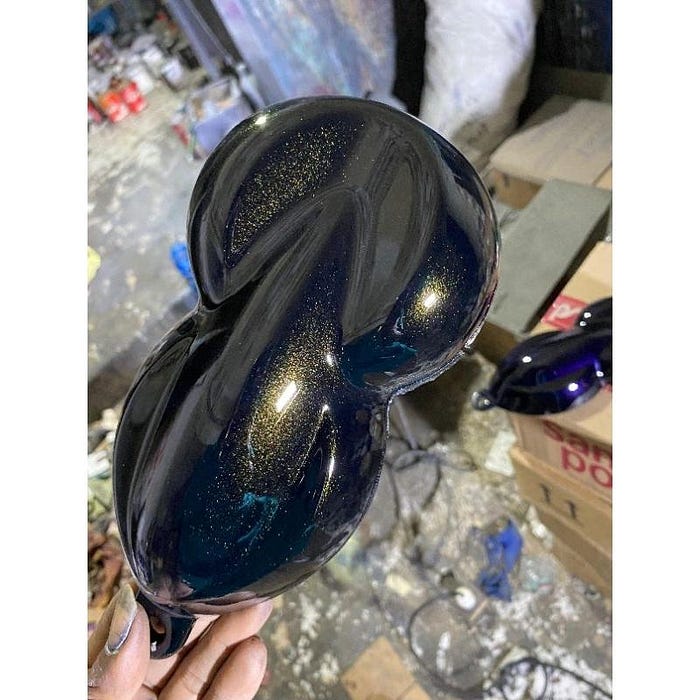This work is a portrait of two French ambassadors who visited Henry VIII and have been indentified as Jean de Dinteville (left) and Bishop Georges de Selve (right).
The Ambassadors, Hans Holbein the Younger, 1533, The National Gallery, London
It is important to keep in mind that 1533 was a seminal year in English history: Henry VIII and his first wife Catherine were divorced, he then married Anne Boleyn and was excommunicated from the Catholic church. The Protestant Reformation was well underway in Europe and after Henry VIII was excommunicated, England too breaks away from Catholicism.
These events were in part why de Dinteville and de Selve were sent from France to England to visit the Tudor court. It isn't entirely clear who commissioned Holbein to paint their portrait and requested so many symbols and details be added. This work has been the subject of scholarly research and debates for centuries.
These events were in part why de Dinteville and de Selve were sent from France to England to visit the Tudor court. It isn't entirely clear who commissioned Holbein to paint their portrait and requested so many symbols and details be added. This work has been the subject of scholarly research and debates for centuries.
The Ambassadors, Hans Holbein the Younger, 1533, detail of dagger and book
One element that may go unnoticed by most viewers is that Holbein has listed the age of each of his subjects, de Dinteville (29) on the sheath of his dagger and de Selve (25) on the pages of the book his elbow rests upon. These symbols tie into the idea of de Dinteville as a man of action and de Selve as one who is leading a contemplative life. The shelves in the middle are filled with additional symbols that show both men were well educated in a variety of ways.
The Ambassadors, Hans Holbein the Younger, 1533
detail of upper shelf
The upper shelf is filled with scientific instruments and has been referred to as the heavenly realm. Let's look more closely at these objects. Sitting on top of a luxurious oriental carpet we have a globe of the heavens, a quadrant and several instruments used to tell time including two types of sundials.
Are these objects alluding to the knowledge and worldliness of the two ambassadors? Is there a particular day and time that the instruments point to that add to the message in the painting?
The Ambassadors, Hans Holbein the Younger, 1533
detail of lower shelf
The lower shelf while the lower shelf is filled with the objects of man and thought of as the earthly realm. Here we have a globe of the earth, a book open to reveal mathematics, a lute, several flutes and a song book open to reveal specific hymns.
The Ambassadors, Hans Holbein the Younger, 1533
detail of lute and songbook
If you look closely at the lute, you will see that one of the strings has been broken. Therefore an instrument which would be considered harmonious, is now a symbol of discord. Was this a symbol of discord between England and the Catholic church? Perhaps instead it was a symbol of the discord between Henry VIII and Catherine as the queen failed to produce a suitable heir to the throne. Later in the 17th century the lute was frequently used in Northern European painting as a symbol of a woman's sexual organs, though I don't know if there is any connection to that in this painting.
The Ambassadors, Hans Holbein the Younger, 1533
detail of floor and anamorphic skull
Still lower in the painting are the unique type of flooring and the anamorphic skull, which is unrecognizable when viewing the painting head on. The viewer must stand to the side and crouch down in order to see it, though it is thought that it originally hung over a flight of stairs and that the viewer would have an easier time seeing this skull, perhaps so as to be taken by surprise by it.
While there are other examples of anamorphic art (where an image can only be seen from a certain viewpoint) it wasn't common at the time. In fact Holbein was very skilled to have been able to properly execute this artistic trick.
The Ambassadors, Hans Holbein the Younger, 1533
detail of anamorphic skull as seen three dimensionally
The unique flooring is said to be the same as the style in the main altar of Westminster Abbey. At Westminster the design on the floor has a significance as representing the universe. Is the fact that there is a skull placed at the bottom, within a possible symbol of the universe a representation of the inevitability of death? Look again at the full painting at the top and in the top left is a crucifix, placed in a spot over the heavens and earth and reminding the viewer that salvation could be found after death.
Articles and books have been written about this mysterious and compelling work of art and while several interesting theories have been proposed, we may never have all the answers.
If you have not visited the incredible Google Art Project site, I suggest you do so if only to view an incredibly close and detailed version of this painting.








.jpg)


